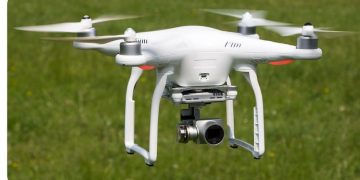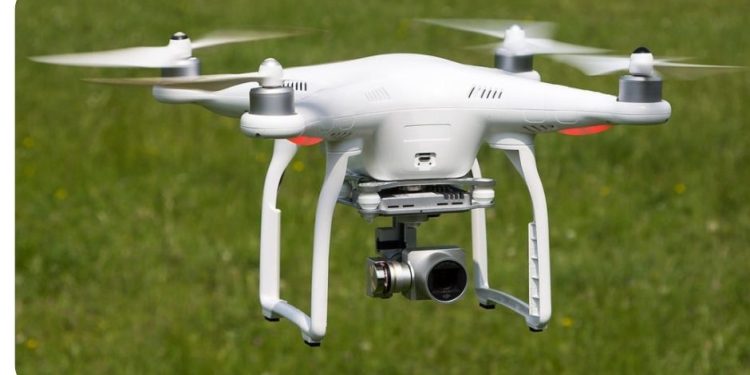A University of Florida agricultural engineer has developed software that can help growers find the best places to plant crops and to identify fruit and vegetable varieties that perform better against diseases. Now, Yiannis Ampatzidis is leading an effort to refine the software so it can help growers even more.
To help farmers protect and even increase their harvests, Ampatzidis, an assistant professor of agricultural and biological engineering at the University of Florida Institute of Food and Agricultural Sciences, works on many innovative technologies.
His latest is “Agroview.”
The cloud- and artificial intelligence-based software analyzes data collected from unmanned aerial vehicles (drones), satellites and other platforms, such as small airplanes. In the case of drones, growers save data to a CD-card, then they upload the data to Agroview, using a PC or laptop.
“This software is useful to growers now,” said Ampatzidis, a faculty member at the UF/IFAS Southwest Florida Research and Education Center in Immokalee, Florida. “For now, we have developed software for citrus, vineyards and sugarcane. We are working on developing similar algorithms for tomatoes, blueberries, strawberries and other tree fruit crops.”
Florida growers welcome any advantage they can get to battle pathogens such as citrus greening. Crop pathogens also threaten the state’s tomato industry, which had sales of $336 million in 2018, according to the U.S. Department of Agriculture’s National Agricultural Statistics Service.
Producers already use the software for many purposes.
For example, many citrus growers want to take inventory of their trees, including the size of each tree. Gathering this data normally requires farmers to manually count trees and measure them. The software streamlines that process, Ampatzidis said. They can also use the software to see which parts of their fields – or which fruit varieties – perform better.
Furthermore, the software also helps growers detect pathogens such as bacteria spot or target spot on tomatoes, earlier. That way, they can thwart the diseases before they cause extensive damage to the crops.
Growers want to know so much more about the software that UF/IFAS faculty are hosting a seminar, starting at 10 a.m., Sept. 25, at the UF/IFAS Southwest Florida REC, 2685 State Road 29 North, Immokalee, Florida. To attend the conference, email maz@ufl.edu.
“In the future, growers could use this software to predict yield, apply chemicals in a timely and efficient manner and to evaluate management practices and plant varieties,” Ampatzidis said.
This year, Ampatzidis has published two peer-reviewed journal articles on his cloud-based software, one in the journal Remote Sensing and the other in Computers and Electronics in Agriculture. Another article is pending journal review.































